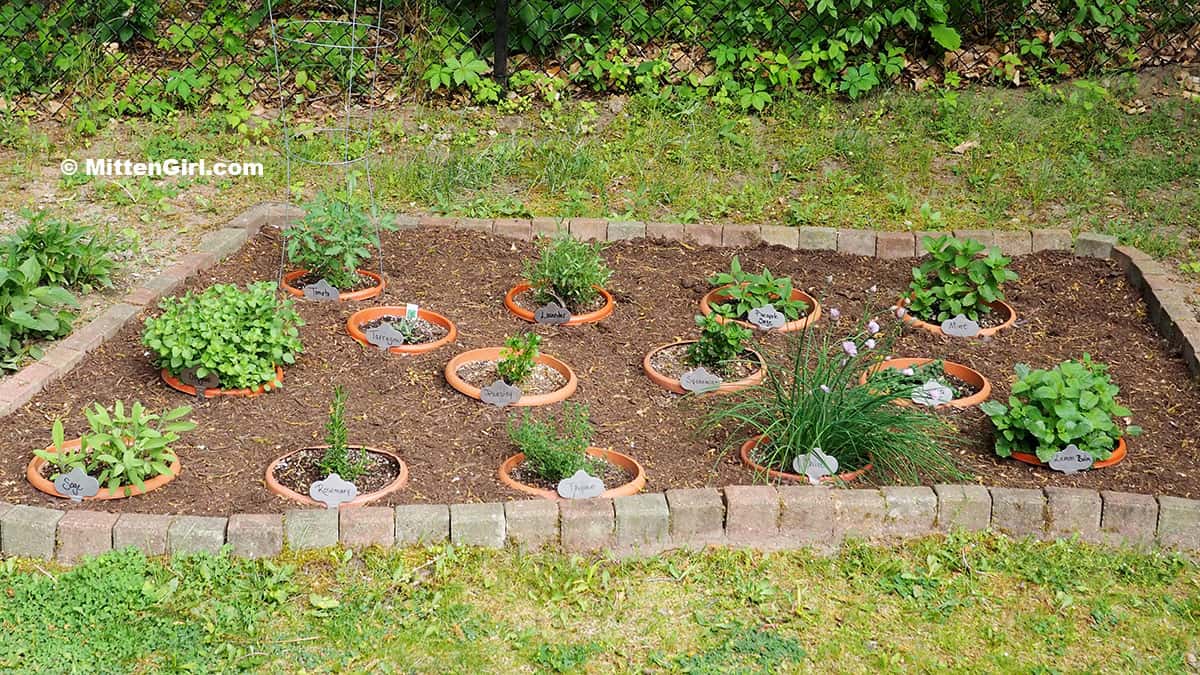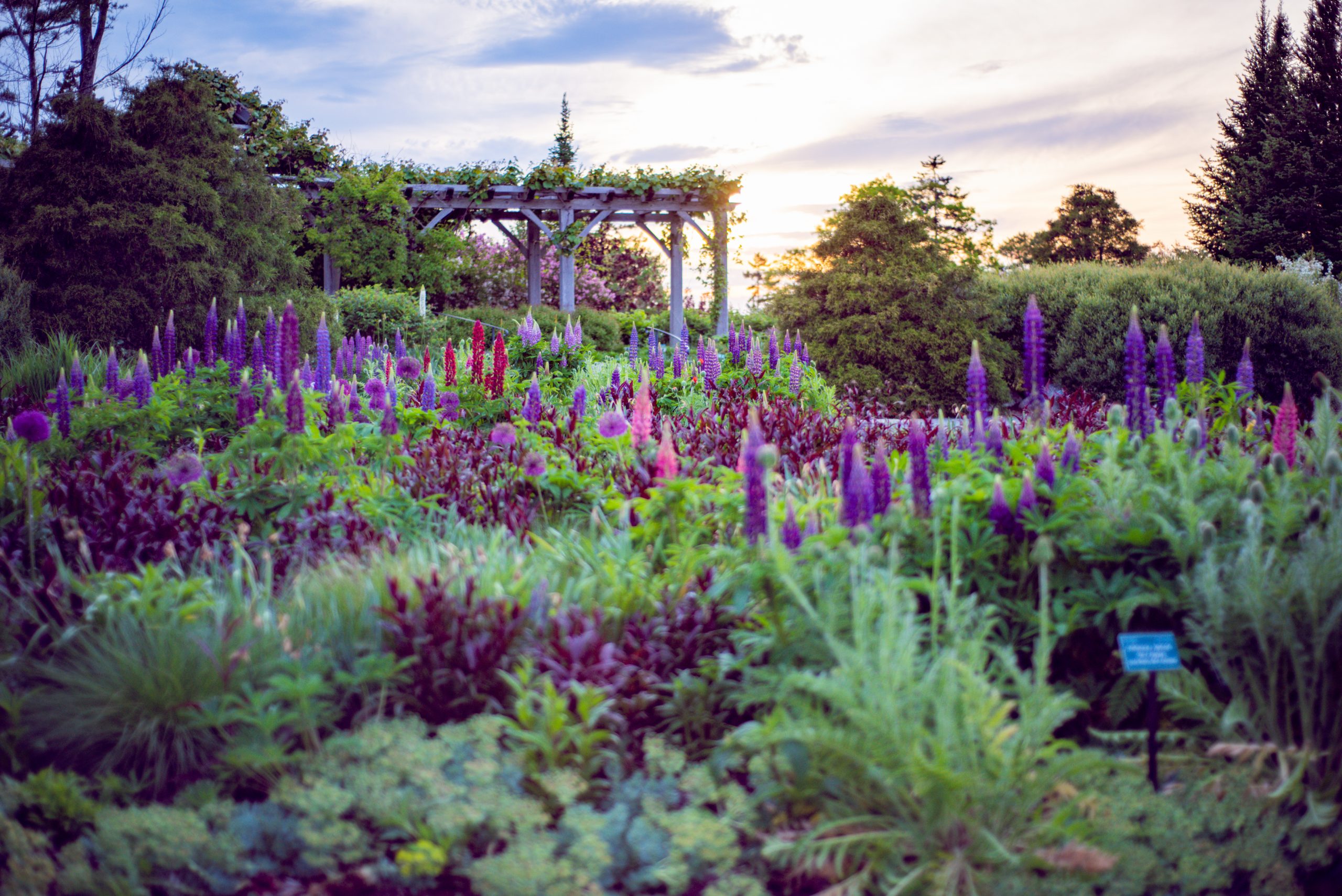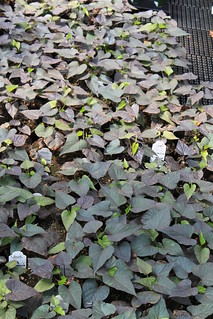Creating and Caring for an In Ground Herb Garden: A Guide for a Lush Homegrown Bounty. Learn how To create & care for your very own lush in-ground herb garden with our comprehensive guide. Discover simple tips & tricks for growing a bountiful collection of herbs right at home. Start enjoying The benefits of fresh, homegrown flavors today!
Creating & Caring for an In Ground Herb Garden: A Guide for a Lush Homegrown Bounty
For many home gardeners, The idea of creating an herb garden is both exciting & rewarding. Imagine having a wide variety of fresh herbs right in your backyard, ready To enhance The flavor of your dishes or create natural remedies. With proper care & attention, you can create & maintain an in-ground herb garden that will continuously provide you with a lush homegrown bounty. In this guide, we will explore The key aspects of creating & caring for an in-ground herb garden, from selecting The right location To maintaining healthy plants.
Selecting The Perfect Location
The first step in creating an in-ground herb garden is selecting The perfect location. Herbs require a good amount of sunlight To thrive, so choose a spot that receives at least six hours of direct sunlight each day. It’s also important To consider The soil conditions. Herbs prefer well-draining soil, so if your soil is heavy or clay-like, you may need To amend it with organic matter To improve its drainage capabilities.
Preparing The Soil for Planting
Once you have selected The ideal location for your herb garden, it’s time To prepare The soil for planting. Start by removing any weeds or grass from The area. You can use a garden fork To loosen The soil & remove any compacted areas. Adding organic matter, such as compost or aged manure, will help improve The soil’s fertility & structure. Mix The organic matter into The soil, ensuring it is evenly distributed.
Choosing The Right Herbs
When it comes To choosing The herbs for your in-ground garden, The options are endless. Consider The herbs you use most in your cooking or those that have medicinal properties that you find beneficial. Some popular choices for herb gardens include basil, rosemary, thyme, mint, & parsley. Research The specific growing requirements of each herb To ensure they will thrive in your garden.
Planting & Maintaining Your Herb Garden
Now that you have prepared The soil & selected your herbs, it’s time To plant & maintain your herb garden. Dig a hole for each herb, making sure To space them appropriately according To their individual growth habits. Gently remove each herb from its container & loosen The roots before placing it in The hole. Fill The hole with soil, firming it gently around The plant.
To ensure The health of your herbs, water them regularly, but avoid overwatering. Most herbs prefer slightly dry conditions, so allow The soil To dry out between waterings. Mulching around your plants can help retain moisture & suppress weeds. Regularly check for signs of pests or diseases & take appropriate action if necessary.
Pruning & Harvesting Your Herbs
Pruning is an essential part of caring for your herb garden. Regularly trimming your herbs will promote bushier growth & prevent them from becoming leggy. Harvesting your herbs frequently will also encourage new growth & ensure a continuous supply of fresh herbs. When harvesting, always leave at least a third of The plant intact To allow for regrowth.
Creating and Caring for an In Ground Herb Garden: A Guide for a Lush Homegrown Bounty

Creating & Caring for an In Ground Herb Garden: A Guide for a Lush Homegrown Bounty
Creating & caring for an in-ground herb garden is a rewarding & satisfying experience. Not only do you have access To fresh & flavorful herbs right in your backyard, but you also have The opportunity To cultivate & nurture these plants from seedlings To bountiful harvests. In this guide, we will explore The critical aspects of creating & caring for an in-ground herb garden that will ensure a lush homegrown bounty for years To come.
Selecting The Perfect Location
The first step in creating an in-ground herb garden is selecting The perfect location. Herbs thrive in areas with full sun, so it’s essential To find a spot in your garden that receives at least six To eight hours of direct sunlight each day. Additionally, consider The soil quality & drainage of The area. Herbs prefer well-draining soil, so if your chosen spot tends To retain water, you may need To amend The soil or select raised beds To ensure proper drainage.
Once you’ve found The ideal location, prepare The soil by removing any weeds or grass & loosening it with a garden fork. This will provide a loose & fertile bed for your herbs To grow.
Choosing The Right Herbs
Not all herbs are suitable for in-ground planting, especially in colder climates. It’s crucial To choose perennial herbs that are safe To plant in The ground, as they will come back year after year. Some popular perennial herbs that thrive in in-ground gardens include mint, chives, sage, thyme, oregano, & rosemary. These hardy herbs can withstand varying weather conditions & are low-maintenance, making them perfect for any herb garden.
To learn more about perennial herbs safe for in-ground planting, visit this helpful resource.
Proper Planting Techniques
When it comes To planting your herbs, it’s essential To follow proper techniques To ensure their success. Start by digging a hole twice The width & depth of The herb’s pot or root ball. Gently remove The herb from its container & place it in The hole, making sure The top of The root ball is level with or slightly above The soil surface. Backfill The hole with soil, pressing firmly around The herb To eliminate any air pockets.
After planting, water your herbs thoroughly To help them establish their root systems. Monitor soil moisture levels & water The plants whenever The top inch of soil feels dry. Avoid overwatering as it can lead To root rot & other issues.
Providing Essential Care
Once your herbs are planted, they require proper care To ensure their growth & longevity. Regular watering is crucial, especially during dry spells or hot summer months. Additionally, it’s essential To provide occasional fertilization To replenish nutrients in The soil. Use organic fertilizers or compost To feed your herbs & avoid chemical-laden products that can harm both The herbs & The environment.
Furthermore, maintain your herb garden by regularly pruning & harvesting. Pruning encourages bushier growth & prevents leggy or woody stems. Harvest herbs when they are at their peak flavor, usually in The morning after The dew has dried. Use sharp scissors or pruning shears To avoid damaging The plant.
Maintaining a Healthy Herb Garden
Regular maintenance is key To keeping your in-ground herb garden healthy & thriving. Some essential tasks include weeding To eliminate competition for nutrients & sunlight, monitoring for pests & diseases, & providing adequate airflow by spacing your herbs appropriately.
To enhance The growth of your herbs, consider using organic pest control methods such as companion planting or natural repellents. These methods help deter pests while avoiding The use of harmful chemicals.
To further enrich your knowledge of growing herbs, visit this website for more valuable tips & information.
| Aspect | Creating & Caring for an In Ground Herb Garden | Other Herb Gardening Methods |
|---|---|---|
| Suitable Herbs | Perennial herbs | Annual & biennial herbs |
| Longevity | Year after year | One season or two |
| Maintenance | Low-maintenance | Requires regular replanting |
| Environmental Impact | Organic methods, no harmful chemicals | Potential use of chemical pesticides |
In conclusion, creating & caring for an in-ground herb garden offers numerous benefits, including a bountiful supply of fresh herbs right in your backyard. By selecting The perfect location, choosing The right perennial herbs, following proper planting techniques, & providing essential care, you can cultivate a lush & thriving herb garden. Remember To maintain your garden, address any issues promptly, & enjoy The satisfaction of growing & nurturing your own homegrown bounty.
Personal Experience: As an avid gardener, I have been creating & caring for in-ground herb gardens for several years. The joy of watching The herbs grow & thrive, & The satisfaction of using them in my cooking, is truly fulfilling. It brings me closer To nature & instills a sense of pride in cultivating my own herbs.
Creating and Caring for an In Ground Herb Garden: A Guide for a Lush Homegrown Bounty

To Cover The Topic: “Creating & Caring for an In Ground Herb Garden: A Guide for a Lush Homegrown Bounty
What are The benefits of creating an in-ground herb garden?
An in-ground herb garden offers numerous benefits, such as easy access To fresh herbs for cooking, cost savings by growing your own herbs, & The satisfaction of successfully cultivating your own plants.
How do I select The perfect spot for my in-ground herb garden?
When choosing a location for your in-ground herb garden, look for an area that receives at least six hours of direct sunlight, has well-draining soil, & is easily accessible for maintenance tasks.
What are some common herbs that thrive in an in-ground garden?
There are several herbs that thrive in an in-ground garden, including basil, rosemary, thyme, cilantro, parsley, mint, & oregano. These herbs are generally easy To grow & require minimal care.
How do I prepare The soil for my in-ground herb garden?
To prepare The soil, remove any weeds or grass from The chosen area & loosen it with a garden fork or tiller. Amend The soil with compost or organic matter To improve its nutrient content & drainage.
How often should I water my in-ground herb garden?
It is important To consistently water your in-ground herb garden To keep The soil evenly moist. This typically means watering 1-2 times per week, but The frequency may vary depending on The weather conditions & specific herbs.
How can I protect my in-ground herb garden from pests?
To protect your herb garden from pests, consider using natural repellents like garlic or hot pepper sprays, creating physical barriers like fences or netting, or introducing beneficial insects that prey on garden pests.
What are some common issues or diseases that affect in-ground herb gardens?
In-ground herb gardens can be susceptible To issues such as fungal diseases, aphid infestations, or nutrient deficiencies. Regularly inspecting your plants, providing proper care, & promptly addressing any problems can help prevent & manage these issues.
How do I harvest & use herbs from my in-ground garden?
Harvest herbs by cutting The stems just above a leaf node To promote new growth. Rinse The harvested herbs & use them fresh, or dry them for later use. Herbs can be used in cooking, teas, infused oils, or homemade herbal remedies.

Creating & caring for an in-ground herb garden can be a fulfilling & rewarding experience for any home gardener. By following The guidelines outlined in this guide, you can confidently grow a lush homegrown bounty of herbs To enhance your culinary creations.
Throughout this guide, we have emphasized The importance of choosing The right location for your herb garden. Sunlight, soil quality, & drainage are key factors that can greatly impact The growth & health of your herbs. Taking The time To prepare The soil properly, supplementing it with compost or organic matter, & providing adequate drainage will create a fertile environment for your herbs To thrive.
Proper planning & organization will also play a crucial role in The success of your herb garden. Consider The different herbs you want To grow & their specific needs in terms of spacing, watering, & care. Creating a layout & planting schedule will help you maximize your garden space & ensure a continuous supply of fresh herbs throughout The growing season.

Once your herb garden is established, regular maintenance is essential To encourage healthy growth & prevent weed competition. Regular watering, pruning, & occasional fertilization will keep your herbs productive & vibrant. Monitoring for pests & diseases & taking appropriate action will also help maintain The overall health of your garden.
Remember To harvest your herbs regularly & in a way that promotes continual growth. This will allow you To enjoy The flavors & aromas of your homegrown herbs while encouraging them To produce more foliage. Whether you choose To dry, freeze, or use your herbs fresh, they will provide a wonderful addition To your culinary endeavors.
Creating & caring for an in-ground herb garden is a journey that requires patience & dedication. However, The rewards are abundant. Not only will you have a bountiful supply of fresh herbs at your fingertips, but you will also gain a deeper appreciation for The process of growing & nurturing plants.
So, roll up your sleeves, dig into The soil, & let your in-ground herb garden thrive. With The right care, you are sure To reap The benefits of a lush & vibrant garden that will enhance your cooking & bring joy To your daily life. Happy gardening!